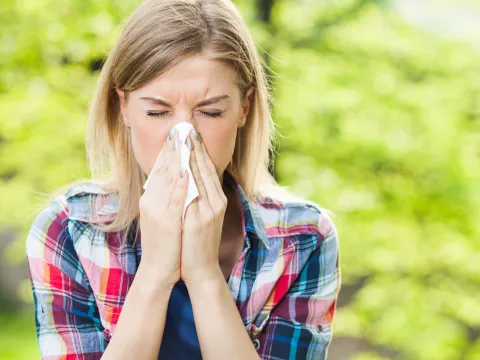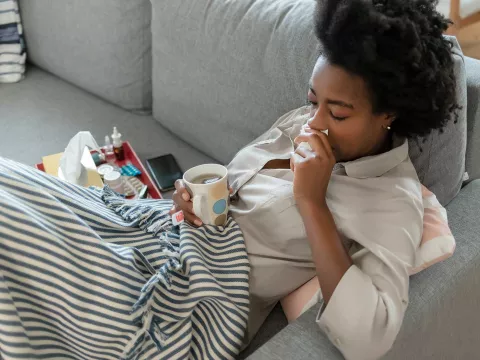- AdventHealth Centra Care

There’s nothing easy about coming to terms with the coronavirus pandemic. For most of us, it means we’re living under a stay-at-home order from state or local government. Many of us are only going out for essentials such as groceries, pharmacy needs or health care.
Adapting to social distancing is the rule of the day. And it can produce feelings of stress or anxiety as we adjust to working from home (or not at all) and spending entire days and nights alone or with family.
Other necessary adjustments during this time include:
- Dealing with social isolation
- Distance learning for children and ourselves
- Finding new ways to exercise and relax
- Focusing on our health, physically and mentally
- Frequently cleaning, disinfecting and hand-washing
It’s quite natural to feel stressed by all this, although everyone is different and will react differently. So what can be done in this new normal? The good news is that you can take steps to reduce stress and anxiety during this time. Here are some coping strategies:
Create a routine. In an unpredictable time, predictability is important. Keep a to-do list to stay focused during the day. Take time for meal preparation, physical activity, work, creativity and relaxation. If you haven’t already, establish times for eating and sleeping, and observe those times every day.
Accept how you are feeling at any given moment. If you are stressed out or anxious, stop and breathe deeply. Remind yourself that you will get through this, moment by moment, day by day. Ask yourself: Are you okay right this moment? Practice gratitude for the positives.
Connect with others. You aren’t able to visit anyone (except for emergencies), but you can keep in touch via text, phone calls or video streaming services. Set a time to speak with family and friends.
Help out. Even though we need to practice social distancing, there are many ways to help out around your house and in your community. The magic of helping out is that it makes you feel better and provides a connection to other people.
Make time for me-time. What have you postponed because you were too busy? A good book? Trying a new recipe? More exercise? Now that you have the time, work those into your daily schedule.
Look for ways to laugh it up. Play games with your kids. Binge-watch a comedy show or anything else that helps take your mind off problems.
Keep your expectations in line with the new reality. Everyone is trying to cope, as are you. Take the time to be patient and show compassion to others.
One word: Boundaries. They’re always important, but now they’re especially so. Make a mental note of where your boundaries are and avoid anything (toxic people and relationships, news broadcasts, weighty TV shows or movies) that may infringe on your peace of mind.
By the same token, stay informed if you become anxious without up-to-date information. It’s important to know what’s going on, but be ready to turn off the latest news if you start to feel anxious or stressed.
We’re Here to Help You Stay Healthy
Looking for an updated resource of coronavirus information? Check out our Coronavirus Resource Hub. The Hub offers important news about the coronavirus outbreak that can help you and your family stay healthy and informed.
Recent Blogs
-

Pruebas de Influenza Cerca de Mí
Encuentre tratamiento contra la gripe cerca de Sanford ahora. Obtenga atención urgente para los síntomas de la gripe con pruebas y tratamiento de la gripe en una de nuestras ubicaciones de Sanford...
-

Tratamiento Rápido y Efectivo Contra La Influenza en Orlando, Florida
Este diciembre de 2022, ya estamos bien entrados en la temporada de gripe, y parece ser una de las temporadas de gripe más graves en más de una década.
